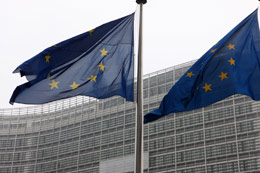Economics, Energy, EU – Baltic States, Legislation
International Internet Magazine. Baltic States news & analytics
Monday, 12.05.2025, 03:05
East European countries have not yet become EU agenda-setters in Brussels
 Print version
Print version |
|---|
But no major difficulties have emerged, claims an ambitious study presented by the Political Science Department at Slovakia's Comenius University.
The study, which was presented on June 1 in Brussels, said that contrary to widespread belief, East European EU members were generally in favour of deepening European integration, with the exception of a limited number of areas, such as taxation and social policy, informs Euractiv/LETA.
The study was conducted over two-and-a-half years and involved interviews with more than a hundred officials in Brussels and national capitals.
The researchers sought to assess the impact that these countries have had on decision-making since they joined the EU. It looked specifically at Slovakia, the Czech Republic, Poland, Hungary, Slovenia, Lithuania, Latvia and Estonia (which joined in 2004), and Bulgaria and Romania (which followed in 2007). Malta and Cyprus, which joined in 2004, were not covered, as they are "a different case," the authors explained.
Contrary to fears in some "older" EU member states, decision-making in the Union has "not really" become more difficult after enlargement, said Vladimir Bilcik from Comenius University.
Indeed, new members rarely vote against a disputed measure in the EU Council of Ministers, he explained.
EU-27 average support for "split decisions" voted by qualified majority in the Council is 93.7%, Bilcik said. Only Poland and Lithuania are below that percentage, he explained. Warsaw and Vilnius had vetoed talks on a new basic treaty with Russia in 2008.
During the period 2004-2009, Poland gave its support to 91.2% of disputed measures, while Lithuania supported 92% of them. By contrast, over the same period, "older" EU members such as the UK or Sweden ranked lower – at 87.9% and 83.7% respectively – while the Netherlands fared better, at 89%.
On 150 decisions taken by qualified majority in 2009, the UK supported 88.6% of them, Austria 86% and Denmark only 74%. In comparison, most East European countries – namely the Czech Republic, Hungary, Slovakia, Slovenia, Poland, Lithuania, Estonia and Bulgaria – did not dispute a single decision taken by qualified majority during that year.
Their 2009 approval ratings stood at a staggering 100%, with only Romania and Latvia ranking lower, at 98% and 96% respectively, the study reveals.
The downside of this high approval rate is that the new member states have not really become agenda-setters, Bilcik explained. The only exceptions, he said, were the EU's Eastern Partnership initiative and nuclear energy.








 «The Baltic Course» Is Sold and Stays in Business!
«The Baltic Course» Is Sold and Stays in Business!

